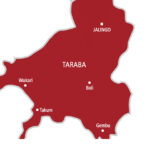How was ‘Tafi’ born?
Musa Abdullahi: I’ve been thinking of creating a writing pattern for my language, Hausa, since my student days in the early 60’s, when I had my first degree at the University of Manchester in Physics before converting to Engineering. My friends, mostly British, were always asking if I had a language, not to talk of writing. And when I showed them what is called the ‘Boko script’ (Hausa written in Latin alphabets), they said that was a corruption of the Latin alphabet. When I showed them the Arabic script because Hausa was also written in the Arabic, they said that was a corruption of the Arabic script. They were right. I felt that since we didn’t have writing, why couldn’t one be created? After all, all writings were deliberate human creations, not God’s favour to a select few. The Latin and Arabic alphabets were also derived from the Egyptian hieroglyphics. So I set about it in 1963/64. In 1987 I wrote the book, ‘A Study Of Writing And Development of Tafi: A New Nigerian Writing.’
Why was it a concern for you to make it similar or to ensure that it had the kind of characteristics that the Latin and Arabic alphabets had?
Abdullahi: Development is from the old to the new. You have to take something from the old and improve it. There is something good in ‘Aljami.’ ‘Boko’is the Latin script used in writing Hausa. Some people say it originated from the word‘book.’ When the traditional mallams saw the new script, they thought it was fraud. You know, ‘fraud’ means ‘boko’ in Hausa.
What does ‘Tafi’ mean?
Abdullahi: It’s just a name I picked from the word ‘littafi’ which means ‘book’ in Hausa. It’s the last four alphabets that became Tafi. Tafi in Hausa means ‘palm of the hand,’ so this combined, gives the word ‘Tafi’ – a new Nigerian writing.
So what were the first steps for you towards developing Tafi?
Abdullahi: I studied the characteristics of the Latin alphabet, order, and also various attempts have been made by many Africans in Nigeria, Sierra Leone, Mali, and Somalia, to create writing for their languages. Even the Efiks tried to create a writing ‘Nsibidi.’ Writings start from ideographies, ideas that represent words, logography where writing is in the form of symbols like Chinese. If you want to bring out something new, it has to be definitely better than the old one otherwise, it will not be accepted. English has a total of 26 alphabets, Hausa, Igbo and Yoruba version of Tafi writing has only five or six. If you combine sixthings, two at a time, you form 36 different things which become the consonants and the six digits which are the vowels. One thing I found very interesting is that African languages have similarities. You can write Arabic without vowels and read and understand it, but for Hausa, Igbo and Yoruba you just cannot do it. You need to have vowels.
But what about the pronunciations?
Abdullahi: Pronunciations are there. You don’t change the sounds of /a/ and /a: /. It is what you learn from home. You see, the vowels are /a/, /e/. /i/, /o/, /u/.in these ones, you don’t change that.
How can one distinguish short vowel sounds from long ones?
Abdullahi: There have already been attempts in this language to distinguish them, so there are signs which will distinguish a vowel of high tone and it could be short or long. And the low tone could also be short or long. So there are symbols. In Tafi, you separate vowels from consonants, so a consonant is followed by a vowel. Now a vowel has a space above it for indication of tone and length of the vowel. And it is indicated in the writing. But you don’t have to indicate the length or tone of a vowel. The context would define what you mean but if you or someone else is learning it and you write Igbo, Yoruba or Hausa in Tafi with all the tonal marks, somebody would read it exactly as he knows, so learning this language becomes easy.
What group of people were you targeting when you decided to create Tafi?
Abdullahi: Of course, the young ones because they are the ones who are less prejudiced. I don’t think I can convince an adult in a few hours on how easy it is to learn Tafi, as an older person compared with a younger person. But the young ones learn quickly, and they have the interest.
Are there plans to include it in the Nigerian syllabus?
Abdullahi: I’m hoping that even after my death, in the long run and in generations to come, we may end up with one language and one script.
What things or people influenced you?
Abdullahi: I think Hausa written in the Latin script is not quite perfect. Not that it is all that perfect in ‘Aljami’ either. If I get a letter in ‘Aljami’ now, I can hardly read it because the vowels are missing. There are five primary vowels /a/, /e/, /i/, /o/,/u/ and in Arabic, /a/./e/ or /u/. The /i/ and /o/ are missing.
When you say it’s not quite perfect, is that because it does not exactly represent the Hausa language or because for you, it is an incomplete script?
Abdullahi: It doesn’t represent the Hausa language completely. And it can be improved by additional vowels, and by having each consonant represented by a unique sound and symbol rather than combining two symbols. The English have tried to mend their orthography but because of tradition, they can’t. But we here are not tied to any particular aspect. All these things are brought about by foreigners. So why can’t we create one on the basis of our own culture.
What kind of challenges did Tafi pose to you?
Abdullahi: It required a lot of study, a comparative study of the various scripts in the world. I found out that there are more than 30 attempts by Africans, mainly in West Africa, to create writings for their own languages based on Latin or Arabic. I found out that it is not better than what exists now. Tafi is built on only six symbols. From six symbols, you generate 36 consonants, and these 36 consonants and six vowels are sufficient compared to most Nigerian languages.
What criticisms have you received?
Abdullahi: Some said I was wasting my time, that as an engineer I should find better things and ways to occupy my time. Some others said it was fantastic. This is understandable, anything new needs such criticisms. I have had good comments, even had people writing letters to me in Tafi writing. My students have accepted it and I am hopeful that before my demise I would have established a school in my hometown where we can start teaching these alphabets.
The book was published in 1987, why has it only just become public?
Abdullahi: Even after publishing the advert in the ‘Daily Trust,’ I was thinking there would be comments from Nigeria but most of the comments I got were from America and England, but hardly any from Nigeria. I had over 100 comments and clicks from America and even New Zealand. So far, I have only five from Nigeria; but I am not discouraged.
Why did an engineer decide to take up linguistics?
Abdullahi: I have had invitations to present Tafi writing. The last one was with the Kaduna State University and there is apathy in Nigeria on innovations. Language and writing cannot be far removed from engineering and communications. It is a matter of interest. There is nowhere that it is said if you are in one field, you should not deviate and acquire knowledge of others.
SPONSOR AD
 Join Daily Trust WhatsApp Community For Quick Access To News and Happenings Around You.
Join Daily Trust WhatsApp Community For Quick Access To News and Happenings Around You.



